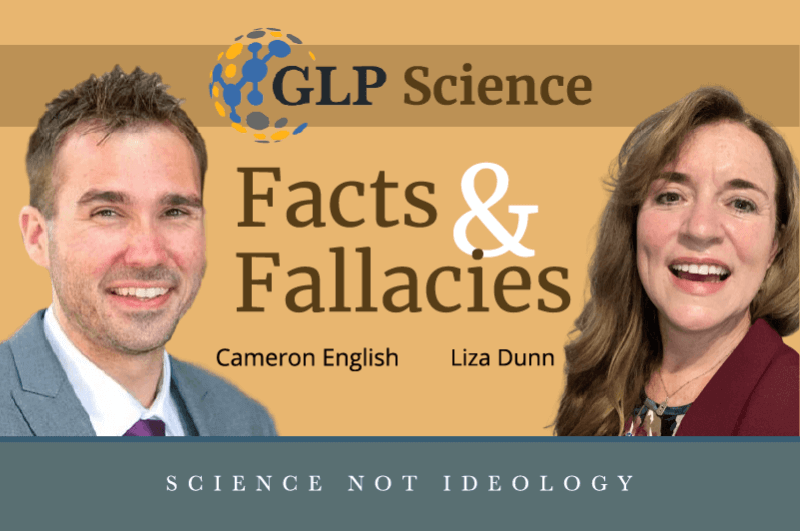Podcast:
Podcast: Play in new window | Download
Subscribe: RSS
Video:
Join hosts Dr. Liza Dunn and GLP contributor Cameron English on episode 247 of Science Facts and Fallacies as they break down these latest news stories:
- Viewpoint: ‘Following sensationalism’ — How media distort science, influencing courts and regulators
It’s a familiar formula: questionable study makes an exaggerated claim about a chemical; reporters uncritically promote the study’s conclusion; courts and regulators restrict or ban said chemical in a bid to appease consumers misled by the hyperbolic media coverage. Reporters need to do a better job of conforming their science and health coverage to the available evidence. Since they won’t do it themselves, what can scientists and informed laypeople do to hold the media accountable?
Glyphosate is arguably the most-studied chemical in history, with thousands of papers published over five decades showing that it poses minimal risk to the public, including pregnant women. Nevertheless, headlines routinely assert that mothers and their unborn children could be harmed by exposure to the herbicide. The claim is usually based on low-quality research unworthy of the glowing media coverage it receives. Let’s examine a textbook example of a recent study involving women who live near farms and the Conversation’s misleading reporting about the research.
Dr. Liza Dunn is a medical toxicologist and the medical affairs lead at Bayer Crop Science. Follow her on X @DrLizaMD
Cameron J. English is the director of bio-sciences at the American Council on Science and Health. Visit his website and follow him on X @camjenglish































